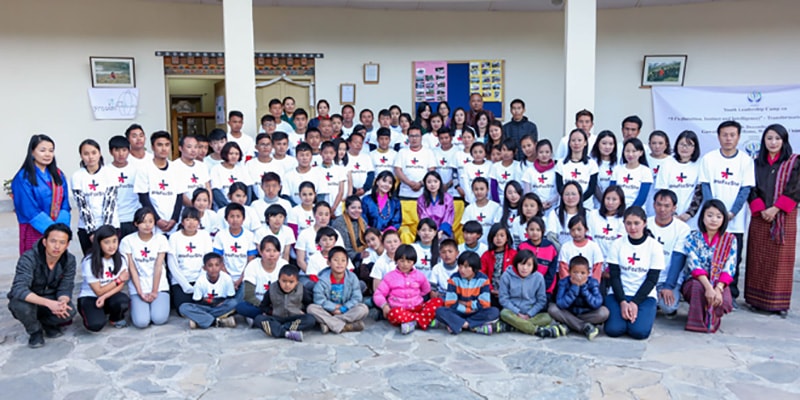Theatre youth camp ends today
30 Dec 2016
Forty-seven students and 11 teachers from various schools in the country exhibited their acting skills by performing skits on various social and health issues faced by adolescents such as substance and alcohol abuse during the five-day youth camp on theatre that ends today.
Her Majesty the Queen Mother Sangay Choden Wangchuck and Her Royal Highness Princess Euphelma Choden Wangchuck graced the camp yesterday where the students performed the skits enthusiastically and energetically at the Respect, Educate, Nurture and Empower Women (RENEW) Gawailing Happy Home in Wangsisina, Thimphu.
The students applied three I’s – intuition, instinct and intelligence – during their performances, which was based on a training module RENEW developed with the author and creative director Charmi Chedda.
Her Majesty the Queen Mother, during the three-day symposium held to observe the International Day for Elimination of Violence Against Women on November 23, launched the module.
The objective of the camp was to let the students learn about the issues and know how to tackle them through fun activities and games held during the camp, Charmi Chedda said. “Students learnt important values such as team work, hard work, dedication, honesty and integrity and participation at the camp. We hope that they will inspire others to be an ambassador of change.”
RENEW’s programme officer, Yangchi Pema, said they began each day with interactive and informative sessions.
“We also had sessions on RENEW and its services, on domestic violence, gender based violence, HIV and sexually transmitted diseases, youth in conflict with law, suicide and adolescent’s health and law, among others. The aim of the camp is also to train students and teachers to conduct drama awareness programmes in their dzongkhags,” Yangchi Pema said.
The camp started on December 25. The camp was designed to give an innovative tool of theatre and drama to RENEW’s Druk Adolescent’s Initiative for Sexual Awareness (DAISAN), which comprises of youth volunteers and students to conduct awareness programmes in their schools and communities on various social and health issues, Yangchi Pema said.
“The teachers that are participating during the camp are being trained to become facilitators on the module so that they can continue facilitating the module in their respective schools with other students. From the workshop, an education video will be developed to guide the students and teachers as future facilitators,” Yangchi Pema said.
— Thinley Zangmo